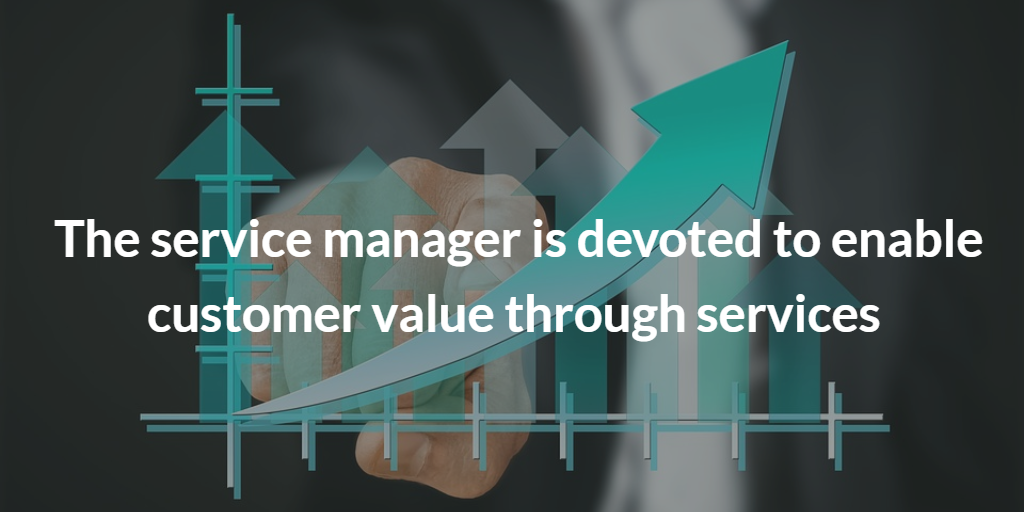The field of Service Management is proving to be increasingly important. In this article, we analyse a key professional figure in this field, exploring their role, responsibilities and skills.
The Role and Responsibilities of the Service Manager
A Service Manager is usually responsible for defining the final service(s) by managing Service Level Agreements (SLAs) and ensuring that services meet the business need.
They manage the Service Department team members, measure and analyse work performances, propose improvements to processes, including customer service interaction (complaints and requests).
The Responsibilities of the Service Manager
The Service Manager common responsibilities are to:
- Oversee and guide all activities of the Service team.
- Coordinate SLA creations (through Interaction with business team).
- Ensure that the team follows Best Practices and maintains Service Level Agreements (SLAs).
- Monitor department issues and client complaints.
- Develop Problem Management and Service Improvement plans.
- Ensure that customers, businesses, clients, and support and technical parties are represented in the definition and evolution of the services.
- Offer customer service.
- Maintain customer relationships.
The Competencies of the Service Manager
The Core competencies of the Service Manager are identifiable in two main skill sets:
Business Competences
- Strategic Thinking
- Business Analysis
- Effective Delegation
- Risk Management
- Prioritisation & Time Management
- Clear Communication
- Business Relationship Management
Technical Competencies
- Broad Technical Understanding
- Service Level Management
- Service Engineering
- Customer Focus
Certification for Service Managers
ITIL 4: ITIL (Information Technology Infrastructure Library) is a set of specific organisational capabilities aimed at creating value for end customers in the form of services. ITIL lays the foundation for international practices that organisations can adopt, in whole or in part, to deliver valuable services to their customers.
If you are a Delivery Manager and want to learn more about the role and responsibilities of this position, read our article “What is a Delivery Manager: Role and Responsibilities“
A concrete example of what a Service Manager does
Although ITIL 4 does not prescribe specific job titles, it provides a framework of service management practices that organisations adapt to their own needs. Two commonly used roles, Delivery Manager and Service Manager, often perform key functions in managing value delivery, although with different responsibilities and scopes.
Marco, Service Manager at a software company operating in the healthcare sector, is responsible for ensuring reliable, high-quality service delivery to hospitals and clinics. His role aligns with ITIL 4 practices such as Service Level Management, Incident Management and Service Request Management.
After analysing support ticket data, Marco identifies recurring inefficiencies, particularly in response times and second-level escalation management. To address this, he implements a new request management system that includes a self-service portal and automatic ticket classification, improving the user experience and internal efficiency.
He also organises training workshops to enhance the team’s skills in communication, request classification and escalation management. At the same time, he renegotiates SLA terms with key customers, setting more realistic but measurable targets, and introduces a structured post-service feedback collection process.
These initiatives lead to concrete results: resolution times are reduced by 30%, the first contact resolution rate increases from 45% to 65%, and customer satisfaction (measured by NPS) improves by 20%. Marco compiles the lessons learned in a formal continuous improvement report, which is adopted as a reference for the company’s future operational developments.
Marco also organizes training workshops to enhance the team’s capabilities in communication, classification, and escalation. At the same time, he renegotiates SLA terms with key clients to set more realistic but measurable objectives and introduces a structured post-service feedback process.
These interventions lead to tangible results: resolution times drop by 30%, first-contact resolution rates rise from 45% to 65%, and customer satisfaction (measured via NPS) improves by 20%. Marco consolidates lessons learned in a formal continual improvement report, which is adopted as a reference for future operational enhancements.
How much does a Service Manager earn in Belgium?
The national average is approximately €60,000 gross per year, equivalent to around €5 000 net per month. The range is wide: entry-level positions start at €48k, while senior profiles exceed €100k, with peaks above €105k in finance, tech enterprise or management consulting. Executive roles in strategic portfolios can exceed €120k.
Three variables are more important than others: seniority, geographical area and sector. Each step up in experience can also be worth up to 15 k €. The variable component, including bonuses and performance-related pay, can account for a further 5-15%.
Freelancers, on the other hand, charge between €65 and €85 per hour, depending on the complexity of the assignment and the type of delivery (services, software, infrastructure, etc.). Certifications, especially ITIL®, offer a competitive advantage, potentially increasing rates or salaries. With 5-7 years of experience, a strong industrial presence and recognised credentials, a Service Manager can aim for €150k gross. The first steps in a career remain close to €60k-80k, with prospects for rapid growth in the first five years.
Frequently asked questions (FAQ) about the role of Service Manager
If you are interested in learning more about how the ITIL Service Management Certification can help you advance in your professional development, read our blogs “Service Value Chain and Value Stream?”.
QRP International is an ATO (Authorised Training Organisation) for ITIL courses. Contact us if you have any questions!








